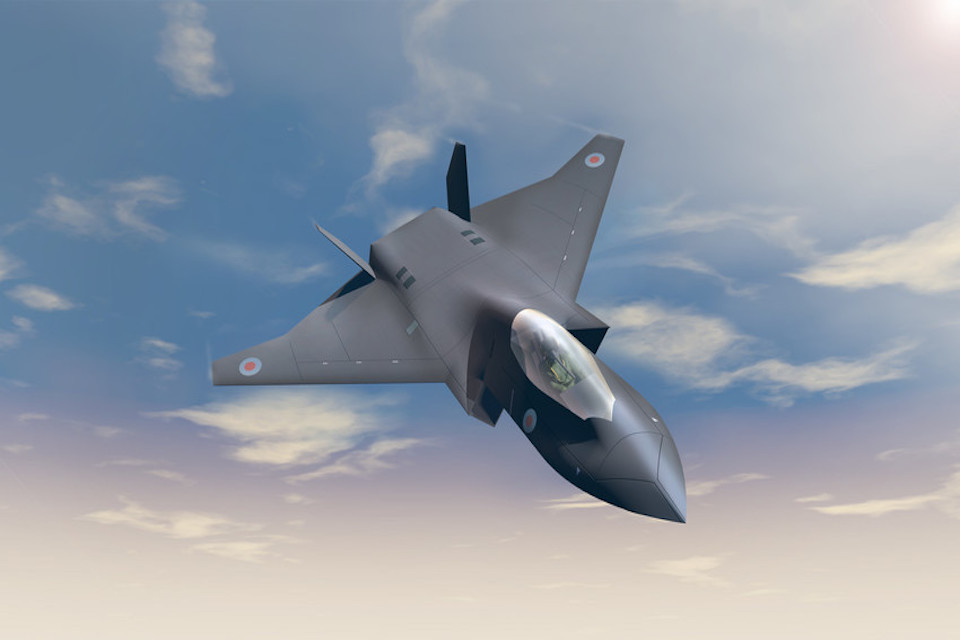UK General Election: What does it mean for defence?
30.05.24


30.05.24

A surprise announcement by Prime Minister Rishi Sunak in May was the starting gun for what will be a busy six weeks in UK politics. Defence, not usually at the forefront of an election campaign, is grabbing headlines, and the possibility of a new government in Downing Street could have wider ramifications for the defence industry. We take a look at the key issues and each party’s policies on defence.
An election in the UK was expected this year, but not quite so soon. Rishi Sunak’s announcement of a 4 July election caught most by surprise and it marks the moment that focus shifts in Westminster to the impending election, and pretty much nothing else.
Parliament will be dissolved on 30 May 2024, and Government enters a pre-election period – also known as “purdah” – which sees ministerial and departmental activity slow down and key decisions and announcements deferred until a new government is formed.
This pre-election period, as well as the potential introduction of a new Labour government, will have a number of consequences for Defence – one of the biggest spending departments in UK government – especially in areas such as policy, investment decisions, and ongoing programmes.
With wars raging across the world, including on the fringes of Europe with Russia’s ongoing occupation of Ukraine, and Israel’s divisive actions in Gaza, defence will be much more prominent in this campaign than at any other time since the end of the Cold War.
Here we will cover the defence policies of the two main UK political parties.
Rishi Sunak has been a vocal supporter of defence since becoming Prime Minister, especially as the start of his term coincided with Russia’s invasion of Ukraine in 2022. Sunak has pledged to raise defence spending to 2.5% of GDP by 2030, higher than NATO’s existing 2% goal for members.
Other pledges have included spending at least 5% of the Defence budget on R&D, as well as shoring up the UK’s industrial base with investment in areas such as munitions manufacturing. The Conservative Government has also stated its intention to form a new Defence Innovation Agency that would consolidate a number of organisations within MoD.
While the rhetoric is positive, we only need to look back at the last 14 years to understand the Party’s performance (or under performance) on defence. Overall investment in defence has remained relatively stagnant, especially after it was slashed during David Cameron’s ‘austerity’ era, and is only recovering now.
Key programmes have also not delivered, especially for the British Army, including the cancelled Warrior upgrade programme, and long, expensive delays for the Ajax vehicle. Personnel numbers across the services have also dwindled to worrying levels and many would argue that the UK Armed Forces are now ‘hallowed out’.
There are some positives, including the development of the sixth-generation ‘Tempest’ fighter aircraft, which appears to be progressing well, as well as innovative technologies such as the DragonFire laser weapon – although when these will be fielded remains to be seen.
A sidenote here is also the Tories’ plans to introduce some form of National Service (UK conscription ended in 1960), although it’s still unclear what form this will take and whether it will be military-based, or something else. This is already making headlines, so it’s worth watching to see how this policy will pan out…if it ever does.

Tempest has progressed well under the Conservatives, with funding being allocated for ongoing development and international buy-in. Crown Copyright.
If the polls are anything to go by, the Labour Party is firm favourite for winning the July election, and the uncertainty at the moment appears to be by what margin.
Labour has come a long way since its disastrous 2019 election campaign under Jeremy Corbyn, not least on defence. Left-wing Corbyn had been a vocal critic of NATO, which he even continued after Russia’s invasion of Ukraine, and unsettled many when it came to security and defence matters, ultimately damaging Labour’s wider defence reputation.
Corbyn’s successor, Sir Keir Starmer, has set out to mend this damage, painting Labour as a reliable party on defence – with some success.[1]
Labour has benefited from a steady hand on the defence tiller in Shadow Defence Minister John Healey, who has overseen the shadow portfolio since Starmer became leader (outlasting several Defence Ministers). To continue the naval metaphor, Labour’s approach to defence has been to not “rock the boat” and ensure some continuum with the Conservatives.
This has included pledging 2.5% of GDP (although this is caveated on improving Government finances) and committing to the nuclear deterrent. Some have argued that Labour should go further and commit 3% of GDP to defence, although this is unlikely to be a vote winner and hence not a priority.
In addition, Labour has also committed to establishing a National Armaments Director (NAD), extending the time served by service chiefs, as well as Military Strategic Headquarters within the MoD.
What impact will the election have on defence in the short term
Unfortunately, the short-term effect of an election on defence is largely negative and disruptive, although once the dust has settled there are opportunities that industry can take advantage of.
Right now in the lead up to the election, we can expect work on Defence programmes to slow down significantly, especially if a new Government is waiting in the wings. The “purdah” pre-election period generally means that funding and investment decisions are deferred so as not to influence the outcome of the election, which again pushes programmes to the right.
Once the election has happened and a new government is formed by the winning party, newly-appointed ministers and senior civil service officials will be appointed. This will begin a period of intense work where new staff are briefed and previous Government programmes/initiatives are scrutinised, and potentially culled (see Cameron’s Nimrod MRA4 cancellation in 2010).
It’s an uncertain time for industry in particular as investment decisions are put off and uncertainly looms around key programmes. But there are opportunities to develop new relationships with incoming ministers and staff, which will be a key driver for many companies in the months ahead.
We will be closely following the UK elections and how it impacts industry, so please keep a close eye on our blog and newsletter in the coming weeks.
[1] In March 2020, a YouGov poll asking “Which political party would be the best at handling defence and security?” saw a 44% approval rating for the Conservatives, and just 11% for Labour. Fast forward to May 2024 and the Conservatives rating had plummeted to 22% and Labour’s had nearly caught up at 20%.


Signatories of:


Members of:



Innovation House
Molly Millars Close
Wokingham
RG41 2RX